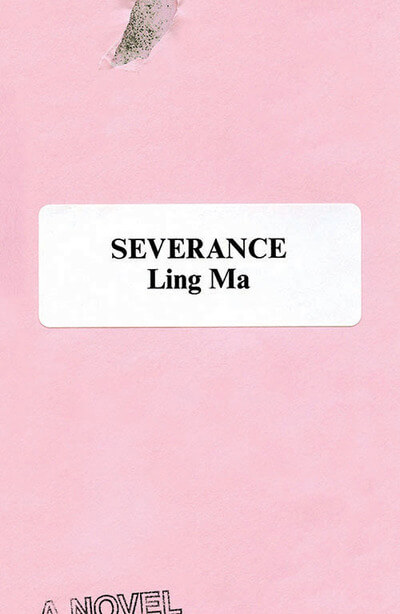I first started writing Severance around the time I realized I was going to lose my job, although I did not know that I was working on a novel. The company I worked for was downsizing and consolidating their West Coast and Midwest offices. As a result, many employees in the Midwest office would be let go, some who had been there their entire careers, spanning several decades.
Most colleagues felt like they had been screwed over by management. As we came to the office day in and day out, the low morale in the work environment was palpable.
I needed to figure out what I was going to do, but instead of applying to other jobs and taking interviews, all it seemed that I could do was write stories. In those final weeks of my job, I wrote more fiction than I had in years. Since some of our tasks were drying up, I would write those stories at the office. Taking a break during lunch hour, I would walk around through downtown, drinking iced coffee and eating pastries. Buoyed by sugar and caffeine, plot ideas and character details would come to me. All around me, people went about their days, using their lunch breaks to window shop, to take dentist appointments, to go to the gym.
One of the pieces I worked on was an apocalyptic short story. Writing anything apocalyptic just seemed fun—the destructive glee of toppling office buildings, of disrupting everyone’s routines, of crushing clamshell containers of sad desk salads. My target was all of these things and none of these things. My target was the larger system, the capitalist power structures that enabled all of this. The authorial power that a writer gets to wield is irresistible, especially to someone (like me) who does not have a lot of power.
Originally, the story was written in the first-person plural—one collective voice that embodied all of these disgruntled employees. But one voice kept breaking out from the rest of the pack, and that was the voice of Candace Chen, who eventually became the protagonist of Severance. I knew her job right away. She worked in New York, as a production coordinator for the manufacturing of Bibles, which was all taking place in China and other Asian countries. It became clear that the apocalyptic story was really a meditation on work, of its routines and its conciliatory satisfactions in the age of globalism.
When I first interviewed at the company, a VP had perceptively mentioned to me, “I think you’re qualified for this position, but you’re going to get bored in two years.” He said he would recommend me for the job, but that I might reconsider my options after two years. Around the time of the corporate downsizing, I had been working at the same job going on three years. I wondered, what kept me working there? This is a question that many of my friends also asked of themselves, about why they still stuck at their jobs. I think writing the novel was also a way of trying to answer that question.
“The feeling was one of liberation, and maybe that feeling comes during apocalyptic, chaotic times.”
As I wrote, I found inspiration by reading the works of Kafka, everything from his short stories to his journals, in which he complained about how a job disrupted his writing. Kazuo Ishiguro’s The Remains of the Day, about an English butler, always seemed like the ultimate office novel to me. The TV shows I watched were at heart narratives about work: “The Sopranos,” “The X-Files” and “Mad Men.” I’ve always maintained that I learned how to plot by watching eight seasons of “Mad Men,” the way that the storylines were organized more by thematic layering than a string of causal events. I didn’t write the novel in any particular order, simply jumping to whichever scene felt the most urgent at the time, and organizing the novel around those guideposts.

As for my job, the closer the end date neared, the emptier the office became. Some employees found new positions at other companies and left, while others made the move to another branch office. All the rules flew out the window. Going to work was a surreal experience. I have this memory, set during those final days, of coming into the office at nine in the morning and being handed a plastic flute of champagne and a donut. There was no one watching us. The feeling was despair, but also one of giddiness. The feeling was one of liberation, and maybe that feeling comes during apocalyptic, chaotic times.
After my last day at the company, I took my severance and got on unemployment. I called it my arts fellowship. I continued working on the novel. However, in order to secure more funding, I ended up applying to MFA programs and was accepted by Cornell University. I moved to the remote town of Ithaca, New York, and spent the next four years steadily working on Severance. During the summers, I established a writing routine that was very similar to my office routine: I would begin writing at nine in the morning, take a long lunch break and then resume writing until six in the evening. It serves me still.
This article was originally published in the August 2018 issue of BookPage. Download the entire issue for the Kindle or Nook.







